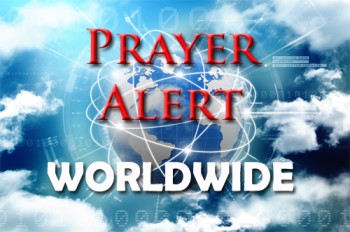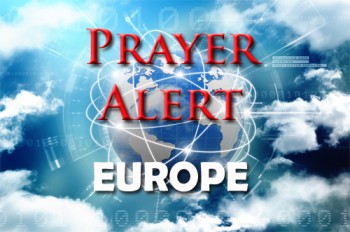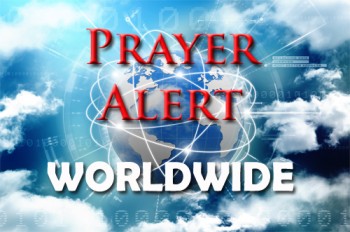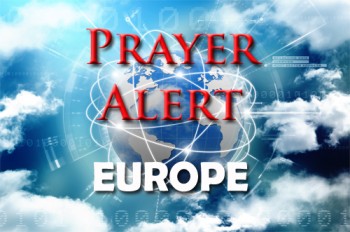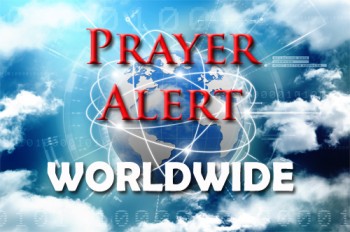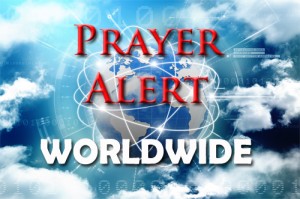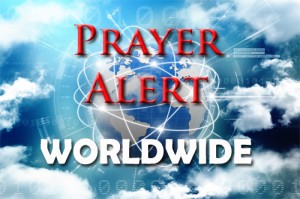Displaying items by tag: unrest
Iran: executions rise amid unrest
Iran recently hanged two men for blasphemy, saying they had insulted the prophet Muhammad and promoted atheism. They were arrested in 2021 and spent months in solitary confinement without family contact. Iran has executed over 203 prisoners this year, but executions for blasphemy remain rare. The recent spate of executions, including members of ethnic minority groups, comes amid continuing protests over the arrest of Mahsa Amini by Iran’s morality police and her death in their custody. Over 500 people were killed and 19,000 arrested in the protests, which have been one of the biggest challenges to Iran’s theocracy since 1979’s Islamic Revolution. Today public frustration extends beyond repressive dress codes. The economy is in poor shape due to sanctions and Iran’s policy incompetence. Inflation is above 40%, currency is a record low, and unemployment tops 10%. Many believe that these anxieties mean further unrest is unavoidable.
France: Covid deadlines and demos
French healthcare workers now face suspension if they are not vaccinated against Covid-19. The demand affects all medical professionals and those working with vulnerable people (including nursing homes' non-medical staff). 86% of healthcare workers are fully inoculated, suggesting many are risking sanctions. Also a phased roll-out of a Covid pass has been introduced - attesting its holder had either been vaccinated, tested negative or recently recovered from Covid - to visit cultural and leisure venues, bars, restaurants, large events or use long-distance public transport. On 14 September 'Infringement of freedom' protests were held in Paris over these rules. Over 9,000 Covid-related hospitalisations did not deter protesters, whilst others showed up to vent their overall frustration with the tenure of President Emmanuel Macron. Over last weekend, in Paris alone, three different Covid-related demonstrations took place. See
Mozambique: drought, famine, unrest, refugees
In Cabo Delgado, most Internally Displaced People (IDPs) have lost access to their basic livelihoods due to years of conflict. Neighbouring areas that were previously classified as ‘stressed’ now face ‘crisis’ situations due to a rapid increase in IDPs. Conflict and even more IDPs has made many areas inaccessible for those distributing humanitarian aid. They are in ‘crisis’ situations. Some of the most affected families who have lost their homes and livelihoods face difficulty escaping to safe areas, and will face even worsening famine. Families in drought areas are consuming wild foods due to low income and exhausted food stocks. Unfortunately, poorly distributed rainfall through December limited planting in southern Mozambique. Please pray that food security will begin to improve in April 2021 with the start of the harvest. Pray also for the poorest households recovering from Cyclone Idai but contending with worsening economic shock due to Covid-19.
Italy: unrest in the south
Lockdown is the only solution to ending the pandemic, and Italy’s government has extended it beyond 3 April with no new deadline. In the south, hunger and hardship threaten to be even bigger problems than the virus, with regions beginning to feel the weight of the economic blow. Many residents are beginning to run out of food and money. An estimated 3.3 million Italians - one-third of whom are located in the south - work off-the-books for cash, making them unsure of when their next pay cheque will come. This concern has caused some southern Italians to plot raids against grocery stores, and authorities are worried the situation could become violent. Pray for the poorest southern regions - Sicily, Campania, Calabria, and Puglia - to know peace not violence as they begin to struggle for food and money. A private Facebook group, urging people to organise large raids on grocery stores and markets, is currently under investigation. One man addressing the government said, ‘You will regret this because we are going to have a revolution’. See
Latin America: a new Cold War?
Many geopolitical media watchers and prayer warriors believe the growing wave of anti-government protests ravaging the streets of Ecuador, Chile, Bolivia and Colombia hasn’t been seen since the old Cold War, which is why the increase in protests and tensions might be called Cold War 2.0 in Latin America. This time, at least as yet, there aren’t armed proxy groups in play but Moscow has weaponised social unrest to sabotage Western power in the region. Earlier this decade we saw similar issues on Russia’s strategic periphery, notably in Ukraine in the wake of the 2014 Maidan protests and the 2005 Orange Revolution. These protesters aren’t necessarily armed Marxists, but anti-government and armed with anti-US rhetoric. Much the same approach is evident in Moscow’s support for Nicholas Maduro’s failing regime in Venezuela, with the help of Cuban operatives. Russia has become increasingly adept at using social media to disperse disinformation on the Internet.
Israel and Hamas
The Israel Defence Force (IDF) launched military exercises on 15 July, including one simulating conquering Gaza city. The IDF stressed that this exercise was part of its annual training programme and not connected to major exchanges of fire with Hamas two days earlier when 200 rockets and mortar shells were fired at Israel, threatening the lives of tens of thousands. Their defence system intercepted 20 rockets. Several Israelis were injured and many buildings were damaged, including a synagogue. While relative peace has returned, Israelis fear that soon civilians will again have to run for shelter from Hamas rockets. On 16 June 22 people, including 9 Iranians, were killed in an IDF attack on a Syrian base. On 18 July Gaza’s self-described ‘airborne firebomb squad’ accused Israel of spreading lies about a deal reached between Egypt and Hamas to phase out the launching of bomb-laden kites and balloons against Israel. See https://worldisraelnews.com/rebel-terror-group-in-gaza-rejects-egyptian-hamas-deal-to-stop-fire-kites/
Venezuela: unrest after election result
In a worsening economic crisis Venezuelans re-elected president Maduro, causing an international backlash to the ‘landslide vote’ marred by opposition boycotts and vote-rigging claims. Fourteen countries, including Argentina, Brazil and Canada have recalled their ambassadors from Caracas in protest. Leaked data from two Caracas hospitals show major shortages of food and essential supplies causing more underweight babies being born and an increase of babies and new mothers dying. Venezuela is the most corrupt country in Latin America. A recent investigation by Transparency International showed that the government had signed contracts worth at least US$30 billion with Odebrecht, the Brazilian construction giant at the heart of an enormous bribery scandal in Latin America and elsewhere. Donald Trump called for new elections to ‘end the repression’ of Venezuelans. See
